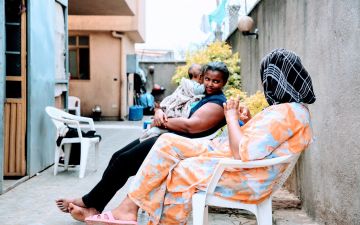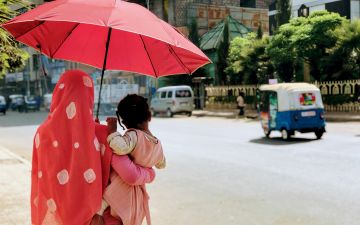From November 2017 through 2019, Saudi Arabian officials reported the arrest of over 4 million foreign workers and deportation of more than a million who were in violation of labor laws. Under this deportation campaign to “Saudize” the workforce by replacing foreigners with nationals combined with the fears that migrants spread COVID-19 some 390,000 Ethiopians have returned home.
For the women who have returned, many arrive shrieking, wailing, and tearing at their hair—some unconscious, others in acute distress, and many without belongings, money, or a way home. This increasingly common scene at Bole International Airport was sparked by the Kingdom of Saudi Arabia’s mass deportations of foreign workers in 2013 when some 160,000 Ethiopians were sent home.
Overwhelming the already fragile ecosystem of mental health care, the lone psychiatric hospital, Amanuel, was pushed to the brink trying to accommodate traumatized women with makeshift spaces in corridors. Shrouded in fear and stigma, citizens, academics, and health care workers have been seeking answers to what is causing such high rates of supposed mental illness in women coming home from the Kingdom and how to help them. Solving this humanitarian crisis has taken on new urgency with this second round of deportations.
Many of them trafficked, most of them abused as domestic workers, these returning women tell us what it’s like to come home. In this project, Arianne Henry explores the following questions: Why do we suffer? Why some more than others? Why do we long for home even when it was never a good place?


